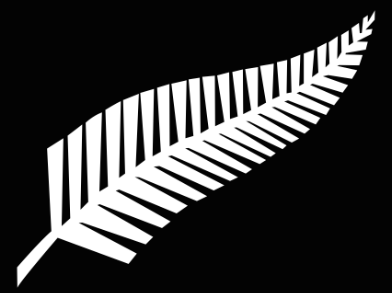Dad’s Family
All of Dad’s grandparents were born in England, but came to New Zealand and settled in the South Island. His Father was the fifth of seven children and was born in Picton, but when he was 13 and his brother two years older, they left home to make their own way in the world. Dad’s Mother was born and married in Rakaia and her brothers lived there all their lives. His Mother was not a very well child, but she told me of being set to scrub the kitchen floor and with difficulty finished it. Her Mother decided it wasn’t done well enough and threw a bucket of water over it and made her start again.
Thus she became very meticulous in all she did and expected others to be the same. They were married in 1900 and the three older children were born in the South Island, but Margaret was born in Auckland when they were staying with her sister before going on to their own holding in the King Country. A photo in the magazine ‘Memories’ shows the three as among the children at the opening of the first school (a marquee) in May 1911.
That one burnt down but was replaced by another, but no mention was made as to whether they had desks or had to sit on the floor. When the family went there they bought a horse and dray (their means of transport but their belongings had to go by packhorse and Dad’s Mother told me how horrified she was to see the Maori man use his big boots to push her lovely white tablecloth into the saddlebags). What they had to live in she never did say. The first necessity was to clear some land of the forest that was all around. Dad’s Father had been a bushman so this was not new to him, but to be on the end of a long saw in a pit was certainly new to his Mother but she was a determined woman and was soon an expert at it – as no doubt most of the women folk in Kaitangiweka had to become. The 10 or so families who lived in that area formed a close knit community and were very supportive of each other, but when a young man from a neighbouring farm came and asked for a bed and maybe work there must have been a reason. The lad said, “the pig died and we ate that, the cow died and we ate that, then the old Grandma died – and I wasn’t waiting…” When Dad was ‘on the way’ his Mother was so ill she had to go to live with her Mother in New Plymouth. Her Doctor was very doubtful if he could save the baby’s life, maybe not even the Mothers. Thankfully they both survived, and when they returned they arrived at Te Kuiti Station sometime in the night and had to wait there until morning. Several Maori women were also there and not having seen a white baby before were very curious. Dad’s Mother, though, was rather worried and very thankful when her husband arrived to take them home. The only transport was still horseback. In the meantime they had cleared enough land to feed a few cows, there were some roads and Dad’s Father had bought a wagon and horses to cart the cream his neighbours produced to a factory. His wife milked their cows (by hand) and separated the cream, and then had to winch it across a stream to the road.
When Dad was about five years old they shifted to Takanini and he went to school there. They lived in a farm cottage, although the farmer did not employ them, Dad and his Mother did help quite often. His Father worked on the railway. When Dad passed Standard 6 he went to live with his Aunt in Auckland and worked at repairing shoes. Some time later he worked for a farmer who also had a truck and after learning to drive, carried on his carrying business, often having to deliver manure (bags) on his back, as not many farms had a solid drive across them. His brother-in-law had a farm in Te Uku and for a time he worked there, breaking in horses and working them, until he shifted to Puketaha, to Fred Mayall’s.
